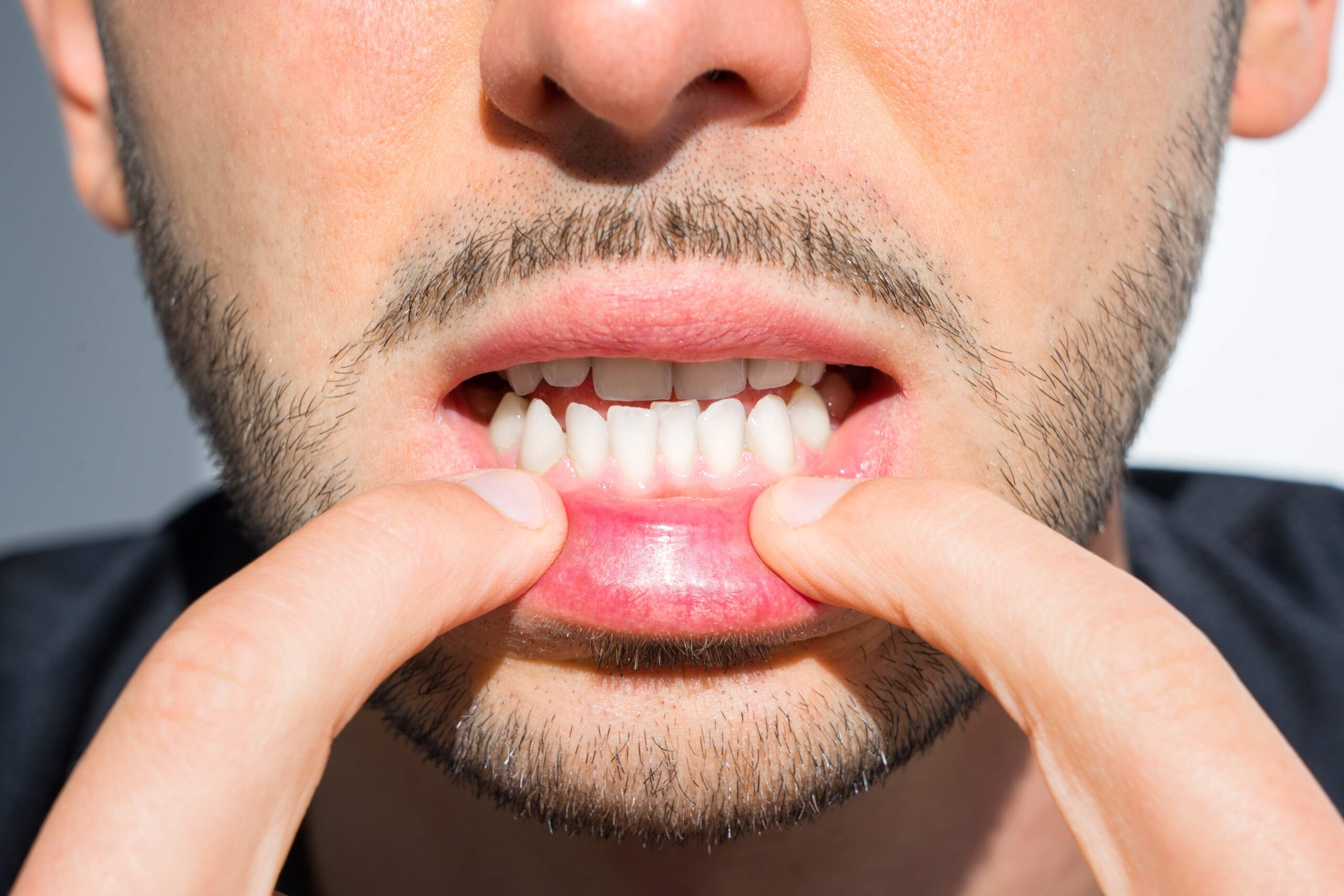How Braces Can Help Correct an Underbite

An underbite, also known as a class III malocclusion, is a dental condition where the lower teeth protrude beyond the upper teeth, often resulting in an awkward or unbalanced appearance. It’s not just a cosmetic issue; an untreated underbite can cause a variety of dental and health problems, including difficulty chewing, speech issues, and increased risk of tooth wear. If you or your child suffer from an underbite, braces can be an effective solution to correct the alignment of the teeth and jaw.
In this article, we’ll explore what causes underbites, the potential consequences of leaving them untreated, and how braces can help fix this problem. Plus, we’ll discuss why it’s important to consult an orthodontist early for the best results.
What Is an Underbite?
An underbite occurs when the lower teeth extend forward over the upper teeth, which can make the lower jaw appear larger or more prominent. This misalignment can happen for several reasons, including:
- Genetics: The most common cause of an underbite is genetic inheritance. If one or both parents had an underbite, their children are more likely to develop the same condition.
- Jaw Growth Problems: Sometimes, an underbite results from a disproportionate growth between the upper and lower jaw. If the lower jaw grows too much, it can push the lower teeth past the upper ones.
- Thumb Sucking or Pacifier Use: Prolonged thumb sucking or pacifier use during early childhood can affect the alignment of the teeth and jaw, leading to an underbite.
- Trauma or Injury: In some cases, an injury to the jaw or teeth can cause an underbite to develop.
No matter the cause, the most effective way to treat an underbite and restore a healthy bite is with orthodontic treatment, often involving braces.
Why is It Important to Correct an Underbite?
While some people may feel that an underbite is purely a cosmetic issue, the condition can lead to several complications if left untreated. These include:
- Difficulty Chewing and Speaking: An underbite can interfere with proper chewing, making it harder to break down food. Additionally, it can cause speech problems, such as a lisp or difficulty pronouncing certain words.
- Increased Risk of Tooth Wear: When your upper and lower teeth don’t align properly, they can grind against each other in unnatural ways. This can lead to excessive wear on the teeth, making them more vulnerable to cavities, cracks, or even tooth loss.
- Jaw and Facial Pain: An underbite can strain the jaw joints, leading to temporomandibular joint (TMJ) pain, headaches, and even neck and shoulder discomfort. Over time, these issues can become chronic if the underlying bite problem isn’t corrected.
- Self-esteem and Confidence: Many people with underbites feel self-conscious about the appearance of their smile. Addressing the issue with braces not only improves the bite but also boosts self-esteem and overall confidence.
How Braces Correct an Underbite
Braces are one of the most common and effective ways to correct an underbite, especially when the condition is diagnosed in childhood or adolescence. Here’s how the treatment typically works:
1. Realigning the Teeth
Braces use a combination of metal brackets, wires, and rubber bands to gradually move the teeth into the correct positions. For an underbite, the braces work to shift the lower teeth backward and the upper teeth forward. Over time, the teeth will align properly, allowing the upper and lower jaws to meet in a more balanced way.
2. Adjusting the Jaw Position
In some cases, braces alone may not be enough to fully correct the jaw misalignment. If the issue is due to a disproportionate jaw, your orthodontist may recommend additional treatments like headgear or a reverse pull facemask. These devices apply gentle pressure to the upper jaw, encouraging it to grow forward and align with the lower jaw. In more severe cases, surgery may be required to reposition the jaw and achieve proper alignment.
3. Maintaining Results with Retainers
Once braces have successfully realigned the teeth and corrected the underbite, retainers will be used to hold the teeth in their new positions. This is crucial to ensure that the results last long-term and prevent the teeth from shifting back into their original positions.
How Long Does Treatment Take?
The length of treatment to correct an underbite with braces varies from person to person, depending on the severity of the condition and the type of treatment required. On average, braces treatment for an underbite can take anywhere from 18 months to 3 years. In cases where additional jaw adjustments are needed, treatment may take longer.
Although the process requires patience, the benefits of correcting an underbite are well worth the effort. Not only will your bite improve, but your overall oral health and facial appearance will also be enhanced.
Why Choose Elassal Orthodontics in Oklahoma City?
If you or your child are dealing with an underbite, it’s important to seek professional orthodontic care as soon as possible. At Elassal Orthodontics in Oklahoma City, we specialize in creating personalized treatment plans to help patients achieve a healthier, more confident smile.
Our team uses the latest in orthodontic technology and techniques to ensure that your treatment is as comfortable, efficient, and effective as possible. Whether you’re considering traditional braces or Invisalign, we will guide you through every step of the process and work with you to achieve your desired results.
Take the First Step Towards a Better Smile
Don’t let an underbite impact your quality of life. Braces can be a transformative solution, offering both functional and aesthetic benefits. If you’re ready to start your orthodontic journey or if you have questions about treatment options, we encourage you to reach out to Elassal Orthodontics today. Our team is here to help you achieve the smile you’ve always dreamed of. Let’s work together to correct your underbite and give you the confidence to smile with pride!